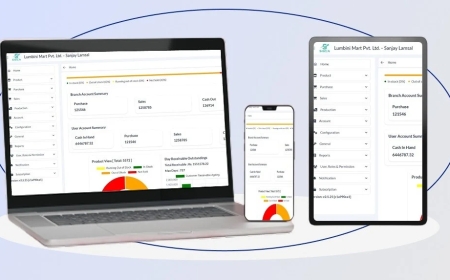Stock Market Timings in India Explained Simply
Discover Indian stock market timings, best software for trading in India, and top algo trading platform. Simple guide for beginners and traders.

What is Stock Market Timings in India?
The Indian stock market operates like a clockwork symphony everything runs in its own rhythm. But for those who are just entering the trading world, the concept of stock market timings might feel confusing or even intimidating. Dont worry! This guide will walk you through when the Indian stock market opens, what happens at each stage, and how it impacts your trades all in plain English.
Well also explore the best software for trading in India, and how algo trading platforms are reshaping the way people invest.
Imagine the stock market as a theatre. The curtain rises at a fixed time, different actors (traders, investors, brokers) take the stage, each scene plays out in a defined time slot, and the curtain closes with a round of applause (or sometimes groans). Lets lift the curtain on Indias trading hours.
Discover Indian stock market timings, best software for trading in India, and top algo trading platform. Simple guide for beginners and traders.
What are Stock Market Timings in India?
The Indian stock market runs from 9:15 AM to 3:30 PM IST, Monday through Friday. But this is just the main session. Theres also a pre-opening session and a post-closing session that most beginners dont know about. Understanding each stage can help you become a smarter trader.
Key Segments of Indian Stock Markets
The Indian stock markets operate in three main segments:
-
Equity Market
-
Derivatives Market (F&O)
-
Commodity Market
Each of these has its own timing, rules, and trading platforms.
Pre-Opening Session: The Markets Warm-Up
Time: 9:00 AM 9:15 AM IST
Think of this as the stretching before a race. This 15-minute window allows for:
-
Order placement, modification, or cancellation.
-
Determination of the opening price based on demand and supply.
Breakdown:
-
9:00 9:08 AM: Place/modify/cancel orders.
-
9:08 9:12 AM: Price matching and confirmation.
-
9:12 9:15 AM: Buffer period before the main session.
Normal Trading Session: The Main Show
Time: 9:15 AM 3:30 PM IST
This is the core session when the real action happens. Traders can buy/sell stocks live on exchanges like NSE or BSE. Market orders, limit orders, and stop-loss orders all come into play here.
Tip: Volatility is often highest during the first and last 30 minutes of this session.
Post-Closing Session: The Wind-Down
Time: 3:40 PM 4:00 PM IST
Its like the encore performance after the show. Traders can place orders that will be executed the next day at the closing price.
-
3:30 3:40 PM: Closing price calculation.
-
3:40 4:00 PM: Post-market orders are accepted.
Trading Holidays: When the Market Takes a Break
Like any professional workspace, the Indian stock market also has official holidays. These include national holidays like Republic Day, Diwali, and Gandhi Jayanti, among others.
The NSE and BSE publish a full list every year. No trades are allowed on these days.
Stock Market Timings for Different Exchanges
NSE (National Stock Exchange) and BSE (Bombay Stock Exchange):
-
Equity: 9:15 AM 3:30 PM
-
Futures & Options (F&O): Same as equity
MCX (Multi Commodity Exchange):
-
Morning Session: 9:00 AM 5:00 PM
-
Evening Session: 5:00 PM 11:30/11:55 PM (depending on DST)
Each exchange caters to different types of assets, so its important to know where you're trading.
Commodity Market Timings in India
The commodity market has longer hours, especially for energy and metals.
Typical timings:
-
Agricultural commodities: 9:00 AM 5:00 PM
-
Non-agricultural commodities (like gold and crude): Until 11:30 PM or 11:55 PM
Why? Because global cues continue to affect prices even after Indian stock markets close.
Impact of Timing on Your Trading Strategy
Your entry and exit points matter a lot. For example:
-
Opening minutes are full of noise avoid making impulsive trades.
-
Midday tends to be calmer, good for analysis.
-
Closing hour sees smart money flow ideal for trend confirmation.
Even algo trading strategies are timed precisely to these moments.
Intraday vs Positional Trading Timings
-
Intraday Trading: You must enter and exit between 9:15 AM 3:30 PM.
-
Positional Trading: You buy today and hold for days, weeks, or months.
Algo trading platforms often automate intraday trades to capitalize on small price movements.
Algo Trading in India
Here are some of the top picks trusted by both retail and professional traders:
Quanttrix
-
Ideal for algorithmic and high-frequency trading
-
Integrated backtesting & strategy development
Zerodha Kite
-
Intuitive interface
-
Seamless charting tools
Upstox Pro
-
Clean UI and real-time data
Angel One SmartAPI
-
Supports algo deployment and analysis
Groww
-
Good for beginners who prefer simplicity
Pro Tip: Choose the best software for trading in India based on your style whether you are a chartist, scalper, or algo geek.
Introduction to Algo Trading Platforms
Algorithmic trading uses pre-defined instructions (algos) to place trades automatically. These can be based on time, price, volume, and even market sentiment.
Popular algo trading platforms in India include:
-
Quanttrix Excellent for custom strategy deployment
-
AlgoBulls
-
Streak (Zerodha) Visual strategy builder
-
Tradetron No-code algo creation
How Timing is Crucial for Algo Trading
Algorithms are sensitive to timing down to the millisecond. A delay can mean missed opportunities or losses.
For example, a mean reversion strategy might only work in low volatility hours, while a breakout strategy might thrive during the opening bell chaos.
So understanding stock market timings is non-negotiable in algorithmic trading.
Stock Market Timing Tips for Beginners
-
Avoid first 15 mins unless youre experienced.
-
Check for holiday calendar before you plan a trade.
-
Use GTT (Good Till Triggered) orders if you cant monitor the market all day.
-
Choose a broker or platform that offers real-time alerts and insights.
Knowledge of market timings + good software = a smarter trader.
Final Thoughts: Mastering Market Hours
Understanding stock market timings in India isnt just about knowing when to trade its about timing your decisions wisely. Whether youre a casual investor or a full-time trader, being aware of the best software for trading in India and choosing the right algo trading platform can drastically improve your success.
The market rewards discipline and preparation. So set your alarms, open your charts, and trade with clarity.
Frequently Asked Questions (FAQs)
What time does the Indian stock market open and close?
The Indian stock market opens at 9:15 AM and closes at 3:30 PM, Monday to Friday.
Can I place trades before 9:15 AM?
Yes, during the pre-opening session from 9:00 AM to 9:15 AM, you can place orders that will be matched at 9:15 AM.
Which is the best software for trading in India?
Some top options include Zerodha Kite, Upstox Pro, and Quanttrix each catering to different needs from beginners to algo traders.
What are the timings for the commodity market in India?
The MCX commodity market operates from 9:00 AM to 11:30/11:55 PM, depending on the asset.
Is algo trading legal and safe in India?
Yes, algo trading is legal and regulated by SEBI. Platforms like Quanttrix offer secure and compliant solutions.





























